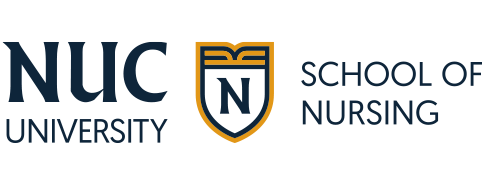For aspiring nurses who are anxious to begin practicing as soon as possible, the Associate of Science in Nursing (ASN) degree program is the great fit. This degree program allows students to develop practical clinical care skills required in most entry-level nursing positions, building a strong foundation for their nursing career. However, after completing the ASN degree, graduates must also pass the NCLEX exam to obtain licensure as a Registered Nurse, which is required for all nursing positions.
Most associate degree in nursing jobs are entry-level positions that allow nurses to learn more about the field and discover specialty areas that interest them most.
Exploring Career Paths With an ASN Degree
An ASN degree provides various career roles for new and aspiring nurses. It opens the door to many opportunities, allowing nurses to focus on positions that align with their personal interests and strengths. Whether you want to work directly with patients, specialize in a particular field of healthcare, or take on leadership roles, an ASN offers the foundation needed to pursue diverse career paths in the nursing profession.
Before you enroll in an ASN degree program, you will want to explore the various career paths available and discover the specializations that exist within the nursing profession. This will allow you to focus on coursework and clinical experiences that align with your professional goals.
Overview of Nursing Specializations
According to Johnson & Johnson, there are a wide range of nursing specializations available for nurses with an ASN degree, such as:
- Pediatric nurse – A pediatric nurse often works in a pediatric healthcare facility or in a hospital setting. They provide care for children from birth until 18 years of age.
- Emergency nurse – An emergency nurse works in the emergency department at the hospital, often providing life-saving care to patients who have been injured or are suffering from a life-threatening condition.
- Home nurse – A home nurse visits patients in the home environment to provide them with nursing care. This may include practical care, such as bathing or dressing the patient, or it may involve providing the patient with medication or other treatment in line with their patient care plan.
- School nurse – A school nurse works in a school, often providing young students with basic medical care throughout the day. They may tend to injuries, help children who are ill, or document disease spread in the building.
Transitioning From Student to Professional Nurse
The Associate of Science in Nursing degree program allows students to build a bridge from the classroom to the clinical environment. While the program includes online coursework, students are required to complete hands-on clinical experiences in healthcare settings such as labs, giving them the practical and technical skills needed for their nursing careers. During these clinical experiences, aspiring nurses begin to understand what daily life is like for nurses at all levels of the profession. This allows them to transition into their professional roles after graduation and prepare for the NCLEX examination.
Diverse Work Environments for ASN Graduates
ASN graduates will find that they can seek employment in a diverse range of work environments. From school buildings and physician’s offices to hospital units, there are ample ASN jobs available. According to the U.S. Bureau of Labor Statistics (BLS), there is expected to be about 193,000 job openings for each year between 2022 and 2032. The field is expected to have a job growth rate of about 6 percent, which is faster than average when compared to all other occupations. Noting these trends, now is an excellent time for aspiring nurses to begin exploring associate degree in nursing jobs.
Hospital Departments and Specialized Care Units
Graduates with an ASN degree are in demand in hospitals and other specialized care units, largely because registered nurses with an ASN degree have a wide range of foundational nursing skills. This allows them to adapt to various departments and units. Some of the tasks that an ASN nurse may perform within a hospital department or specialized care unit include:
- Taking vital signs of patients.
- Ordering tests.
- Providing patients with medication.
- Preparing patients for procedures.
- Communicating with patients and their family members.
- Providing patients with basic care, such as bathing or feeding.
Community Health Settings and Public Health Initiatives
In addition to the clinical ASN jobs available, there are also positions for registered nurses with an ASN degree in community health settings. Community health nurses often work for public health organizations, non-profit organizations, or community outreach organizations. In addition to providing clinical care, they often work to provide a specific community with comprehensive healthcare services and resources. A community health nurse may be responsible for:
- Creating and implementing public health campaigns.
- Working directly with patients of all ages, from infants to senior citizens.
- Providing patients with nutritional counseling or health information.
- Inoculating patients and promoting the importance of vaccines.
- Creating and developing public health educational programs.
- Helping patients within the population they serve access the healthcare resources or programs that they need.
Critical Roles in Patient Care
Graduates pursuing Associate of Science in Nursing jobs will find that these positions fill a critical gap in providing patients with the best possible care. ASN graduates deliver personalized care and play a vital role in the healthcare system. While front office staff and medical assistants often serve as the initial point of contact, nurses are crucial in directly addressing patients’ medical needs, ensuring continuity of care, and guiding patients through their healthcare journeys, whether in hospitals or outpatient settings.
This is the person that they will communicate with, share vital information about their health and well-being with, and even develop a lasting relationship with during the time that they are receiving care. When it comes to improving patient outcomes and patient satisfaction ratings, registered nurses with an ASN degree play a vital role.
The Importance of Bedside Nursing
According to the article “Moving Shift Report to the Bedside: An Evidence-Based Quality Improvement Project,” recent research has revealed that bedside nursing is the key to improving patient outcomes, boosting patient satisfaction ratings, and even streamlining efficiency within the healthcare system. Bedside nursing has been shown to be superior to the shift report tactics that had grown popular a few decades ago.
Essentially, bedside nursing is the practice of working face-to-face with patients and ensuring that their basic needs are met. Rather than nurses leaving the patient and discussing their progress during the morning shift report, registered nurses can instead share information at the patient’s bedside with the physician and other members of the healthcare team. This practice allows the patient to play an active role in their own care, and it can improve the compassion and empathy of all healthcare providers.
Advancing Into Administrative Positions
Many aspiring nurses opt to pursue an Associate of Science in Nursing because it allows them to begin working with patients as soon as possible. However, this degree program also serves as an excellent foundation for career growth and development, with many registered nurses with an ASN working their way up into administrative positions throughout the course of their career. Administrative positions, such as shift supervisor or nurse manager positions, may require a combination of advanced education and professional experience, giving nurses with an ASN the opportunity to prepare accordingly.
Continuing Education and Advancement Opportunities
Nurses with an ASN will find that there are many continuing education and advancement opportunities throughout their career, thanks in large part to the vast number of specializations that exist within the nursing profession. Understanding the continuing education options available to you and how they match your career goals will help you choose the best paths for your personal and professional growth as a nurse.
Pathways to a Bachelor of Science in Nursing (BSN)
Many entry-level nursing positions require nurses to have an ASN degree as well as licensure as a Registered Nurse. However, to advance into higher-level or more specialized nursing positions, you may want to consider a Bachelor of Science in Nursing (BSN). Generally speaking, many employers prefer BSN-prepared nurses for senior-level positions and roles that involve leadership, critical thinking, and comprehensive patient care.
Specialization Certifications and Advanced Practice
Specialization certifications are another pathway toward career advancement in nursing. Some of the specialization certifications in nursing include:
- Certified Nurse Educator
- Certified Wound Care Nurse
- Certified Pediatric Nurse
In addition, nurses may consider advanced practice nursing positions, which are specialized positions that allow nurses to focus on a specific patient population or area of care. To achieve an advanced practice nursing position, you have to pass additional licensures as well as earn a Master of Science in Nursing (MSN) or a nursing doctoral degree. Some of the most common advanced practice registered nurse positions include:
- Nurse Practitioner
- Certified Nurse Midwives
- Clinical Nurse Specialists
- Certified Registered Nurse Anesthetist
Navigating the Licensing Process
Completing an Associate of Science in Nursing degree program will provide you with the knowledge and skills needed to pursue licensure as a Registered Nurse. Navigating the licensing process can be overwhelming, but you can rely on the support of your classmates and instructors as you begin to complete the requirements for licensure in your state. Every state requires nurses to be licensed, but the requirements for licensure may vary from one state to another, making it important to consider the requirements for the state in which you intend to practice.
Preparing for the NCLEX-RN Examination
The NCLEX-RN Examination is the exam that all nurses have to pass to become licensed as a Registered Nurse. The NCLEX-RN Examination is an adaptive computer-generated test, and nurses will receive a pass or fail grade upon completion. During this exam, you will complete anywhere from 75 to 145 questions, with each question becoming progressively more difficult as you move through the exam.
You can best prepare for the NCLEX-RN Examination by:
- Scheduling your exam as soon as possible after graduating. In most cases, you have to wait 45 days after graduation to take the exam.
- Completing practice tests prior to taking the exam.
- Going to bed early the night before the exam and eating a nutritious breakfast that morning.
State Licensure Requirements and Renewal Processes
The state licensure requirements to become an RN will vary from one state to another. In Florida, you are required to graduate from an accredited college or university, you must pass the NCLEX-RN exam, and you must complete a background check. RNs must renew their license every 24 months by completing 24 hours of continuing education.
Prepare for the Best Associate of Science in Nursing Jobs at Florida Technical College
At Florida Technical College, we offer a Associate of Science in Nursing degree that focuses on essential nursing skills as well as the holistic well-being of patients, allowing students to develop a comprehensive understanding of the nursing profession. Students who complete this degree program and fulfill all other requirements for licensure can practice as a Registered Nurse.
Request more information about our online, skills-based degree programs today.
These examples are intended to serve only as a general guide of possible employment opportunities. There are many factors that determine the job an individual may obtain and Florida Technical College cannot guarantee its graduates any particular job. Some positions may require license or other certifications. We encourage you to research the requirements for the particular position you desire.
Sources
https://ftccollegeprd.wpenginepowered.com/program/diploma/associate-of-science-in-nursing/
https://nursejournal.org/degrees/adn/best-paying-adn-jobs/
https://www.allnursingschools.com/adn/career-paths/
https://nursing.jnj.com/specialty
https://www.bls.gov/ooh/healthcare/registered-nurses.htm#tab-6
https://nursinglicensemap.com/advanced-practice-nursing/
https://www.nurse.com/blog/24-nursing-certifications-to-boost-your-career/
https://www.nursingworld.org/content-hub/resources/becoming-a-nurse/tips-for-passing-the-nclex-exam/
https://floridasnursing.gov/nursing-faqs/renewal
This data/stats includes BSN




